
|
Artist's Statement on the body of work titled 'Todo Sobre Mi Padre' (Everything to do with my Father)
20.10.2009
On July 20th 2010 I shall be presenting a new body of work which will be titled 'Todo Sobre Mi Padre' (Everything to do with my Father). It is also the date that Colombia will mark its 200th anniversary of Independence from Spain. Like any child wanting to assert its own identity from a parent it is this journey to forge new paths and create a new sense of community that was the challenge for most former colonies of European imperialist powers. Although most of these newly formed countries came about through forces of violence and exploitation amongst other things they were also the beginning of a fusion between many different peoples and cultures.
In 2002, according to the United Nations international migration report, 175 million people were living in a country they were not born in. It is therefore still relevant now as it was then to try and analyze what it is as human beings that most drives our sense of identity.
As Madeleine Bunting says in her article ('After my Father's death I went North deep into the politics of home' Guardian newspaper Monday 5th October) 'there's been a widespread assumption that in an age of mass tourism and mass migration, a sense of belonging is a concept which has passed its sell-by date'. She goes on to quote Gary Snyder the American writer who argues that 'of all the memberships we identify ourselves by, one thing that is most forgotten ...is place'; he goes on to claim that 'people who can agree that they share a commitment to the landscape/cityscape-even if they are otherwise locked in struggle with each other-have at least one deep thing to share'.
From a very young age I can remember people always asking me where I was from. It came to be such a loaded question because in that instant I felt rejected by them. My awkwardness may also have stemmed from the fact that there was no readily available sound bite for me to reply with, I simply did not know myself. At the age of 15 my father died days after receiving a heart transplant operation. It may well have been this loss (which at the time I found difficult to process and release)which compounded a sense of alienation and separation from the traditions, customs everything in fact that anchored me as an individual to the 'Territory' my mother and father had come from and which I had experienced and tasted as a child.
At its most basic this body of work maps out my father's various migration routes throughout the course of his life. When he was a child in 1941 he embarked on the first leg of what was to be an emotional reunion with his Colombian father. He and his Spanish mother left war torn Spain to passage through Argentina on their way to Colombia. As an adult he returned to Spain to study medicine at the prestigious university of Salamanca. He eventually settled in Oxford, England as a Psychiatrist working for the NHS in the 1960's with my Colombian mother where my sisters and I were all born and brought up. This body of work is more than a tribute to my father and his memory. It is really about my re-connection and understanding of what a sense of place means to me. I have come to some conclusions that it is ok to have an identity that allows for multiplicity. Whenever I return to Colombia or Spain to see relatives or experience the sights and sounds of those places I am aware that there is a spiritual association with my father. I am also comfortable with the notion of embracing my Britishness and creating an intimacy with my local community. The writer James Ellroy wrote that 'geography is destiny' and maybe this kind of sentiment reinforces a new found faith that I have a purpose to fulfil in my adopted home of east London.
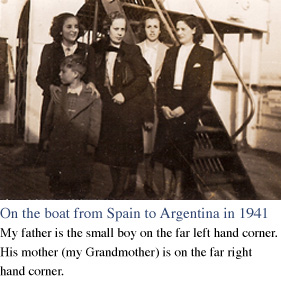  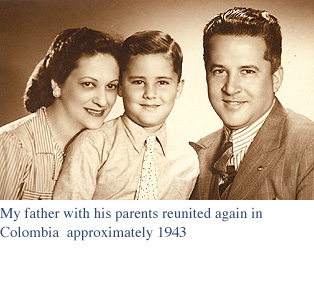
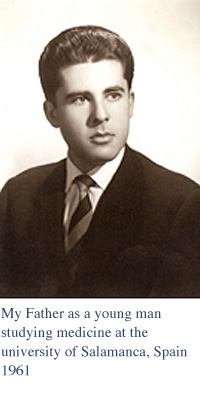  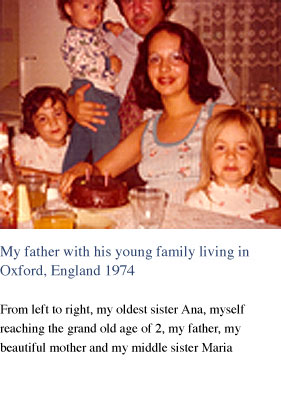
 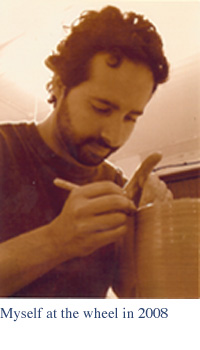
As an artist I feel that it is my job to filter and translate these experiences and share them in the pursuit of truth. It is my goal to achieve a kind of clarity, to make complex things understandable and perfectly obvious so as to give pleasure to anyone looking. I think that the work is the manifestation of the kind of thinking that tries to produce links between signs far away from each other, exploring feelings and sensations from the past, present and future to create original paths.
There is a final element to the work that I would like to draw attention to. Madeleine Bunting articulates this element when she talks about the wilful degradation of the environment and how that new sense of preservation and guardianship (as opposed to ownership) is influencing the way we do things in everyday life 'Belonging can be reinterpreted and that's where a host of seemingly unrelated cultural responses to our predicament seem to be forging a new understanding'. She goes on to say 'the anonymity and homogeneity generated by globalisation leaves us drifting and disorientated; the organic food movement is, in part, about putting back the geography'. I would like to draw parallels with the way an artwork is produced. As an artist I have dedicated my professional life to understanding and forging an intimate relationship with clay just as I have forged intimate relationships with people and places that have grounded me. This kind of thinking has had a profound effect on the way I felt about the physical process of making this body of work. In a way I feel like I have followed on from my last major exhibition 'Throwing lines' which had many connotations mainly to do with the nature of touch as an abstract concept. Lesley Jackson (freelance writer, curator and design historian) wrote in my 'Throwing lines' catalogue 'drawing attention to the abstract qualities of Arroyave-Portela's work is crucial. Although his pots are evocative of natural phenomena, his response to nature is lateral rather than literal'. She goes on to say 'the contours on his vessels are eddies of the imagination'. Ultimately I felt that by exploiting the qualities of clay and drawing on those literal associations with the Earth I could start to tap into the psycho geography of place to express our primal and often overlooked intuitive relationship to the land of our birth and or ancestors. With that in mind I leave you with this powerful extract taken from "Iyani: it goes this way" by Paula Gunn Allen.
"We are the land. To the best of my understanding, that is the fundamental idea embedded in Native American life and culture in the southwest. More than remembered, the earth is the mind of the people as we are the mind of the earth. The land is not really the place (separate from ourselves) where we act out the drama of our isolate destinies. It is not a means of survival, a setting for our affairs, a resource on which we draw in order to keep our own act functioning. It is not the ever-present "other" which supplies us with a sense of "I". It is rather a part of our being, dynamic, significant, real. It is ourself, in as real a sense as such notions as "ego", "libido" or social network, in a sense more real than any conceptualization or abstraction about the nature of human being can ever be....Nor is the relationship one of mere "affinity" for the earth. It is not a matter of being "close to nature". The relationship is more one of identity, in the mathematical sense, than of affinity. The Earth is, in a very real sense, the same as ourself (or selves)."
| 
|